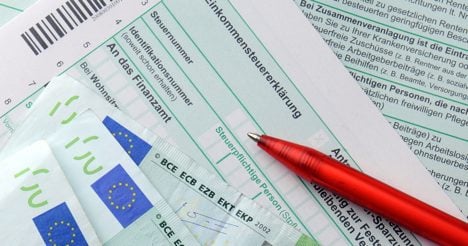All German income tax brackets changed on January 1, substantially relieving many citizens. The bracket for the top 42 percent rate of income tax was raised from €52,552 to €52,882 a year, while the top tax-free income deduction was raised from €7,834 a year to €8,004 for single people.
The lowest income tax rate of 14 percent now applies to those earning €8,005 and more. On top of this, certain health and care insurance payments can now be set off against tax.
Siblings, nieces and nephews have been relieved of inheritance tax, and sales tax for hotel stays has been reduced from 19 percent to 7 percent. Considerable reforms in business tax have also come into force.
The annual child tax deduction has been raised from €6,024 to €7,008 and the government subsidy for children, Kindergeld, has been increased €20 more per child every month. The state will now pay €184 a month each for the first and second child, €190 a month for the third, and €215 each for any more children.
The annual income limit at which statutory health insurance is mandatory has also been raised from €48,600 to €49,950.
There have also been contribution increases – top-earners must now pay €18 a month more in social security contributions. This is part of a regular yearly increase in the standard bracket by which contributions are determined.



 Please whitelist us to continue reading.
Please whitelist us to continue reading.
Member comments